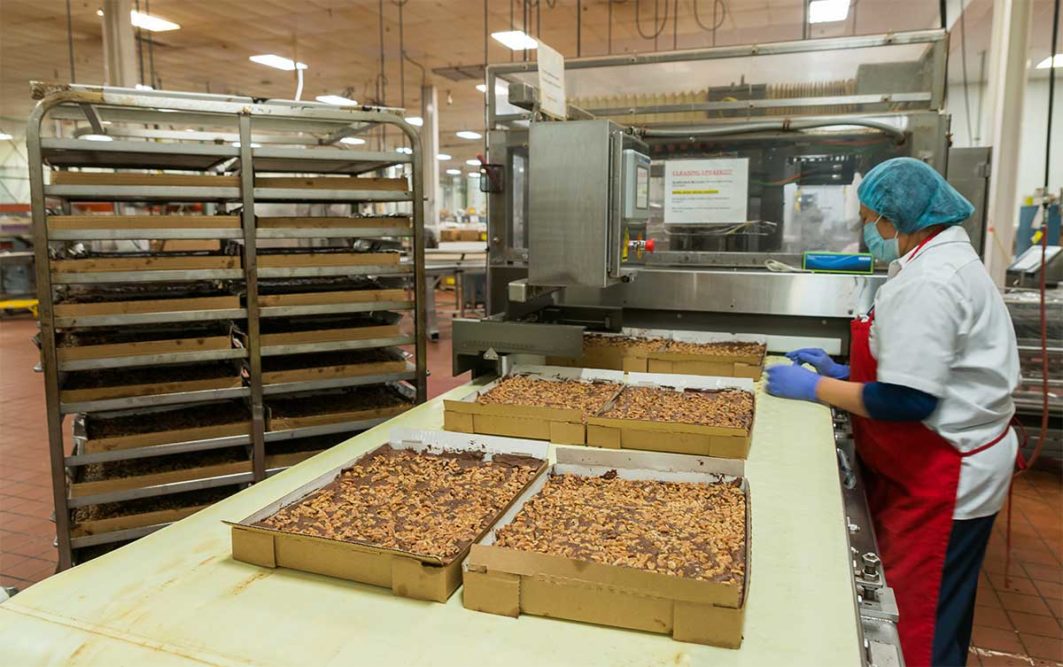As a custom bakery, Main Street Gourmet does not attempt to predict market trends, but rather, Main Street Gourmet’s goal is to listen to what its customers need. By not expending energy chasing market trends, Main Street Gourmet, Akron, Ohio, can focus on solving challenges.
“Our customers know their customers better than we do, so when they are seeing problems, we have to be able to react and solve that problem for them,” said Harvey Nelson, chief executive officer and co-founder of Main Street Gourmet.
Their work could include differentiating muffins from the competition and developing innovative varieties, but Main Street Gourmet also offers solutions for packaging issues, improves ease-of-use for restaurant operators and more. Much of its business is producing promotional products and limited-time offerings.
Being able to pivot requires Main Street Gourmet to be nimble and adaptable. As a part of the retooling of its infrastructure, Main Street Gourmet created an internal process to ensure customers’ projects were completed on time and within specifications without getting lost in the shuffle.
“The infrastructure is very process-driven, very collaborative,” Mr. Nelson explained. “We have to be way more collaborative than other companies because every sale is a project.”
At any given time, Main Street Gourmet is juggling 70 to 80 projects in various stages of development. This large project pipeline requires background systems, checklists and flow-through processes to stream-line product development and move a project to the production floor quickly. All of Main Street Gourmet’s teams — sales, R&D, production, safety and quality assurance — work closely to ensure everyone is on the same page.
Every week these teams meet to check in on every project’s status. This meeting is driven by what Mr. Nelson calls OPF: organize, prioritize and focus. The three elements form the engine that drives Main Street Gourmet’s project management. In this weekly meeting, all the projects are organized and prioritized so that all teams know what to focus on for the week ahead.
Main Street Gourmet’s sales team positions the company as a custom problem-solver. If Main Street Gourmet can work out one problem, it’s feasible the bakery will be able to clear up others for the customer. Saying yes to non-muffin challenges, for example, has expanded the bakery’s product portfolio over the years. Main Street Gourmet’s portfolio now includes muffins, muffin batter, icings, brownies, cookies, bars, cakes, scones, drop biscuits and even granola. Products are packaged in a variety of different ways, depending on the customer’s needs, and shipped frozen.
[Related reading: Main Street Gourmet prioritizes flexible operations]
If a customer comes to Main Street Gourmet with a product that isn’t an exact fit to its capabilities, the team determines how to make it work within the bakery’s existing processes.
For product development, Main Street Gourmet employs three food scientists with various backgrounds, including a pastry chef. This team routinely works closely with sales and customers to ensure they are focusing on the right projects.
“We’re so collaborative, and they have their systems in place so that they are working on the right thing at the right time and at the right pace,” Mr. Nelson said.
This level of collaboration and planning applies to the plant floor as well. The R&D team is familiar with the bakery’s capabilities and the adaptability of the production lines.
“A lot of the recipes designed by our R&D team meet what we can do operationally, and then obviously the customer’s requirements,” said Roger Mitchell, director of operations.
With so many custom projects in the hopper, scheduling production requires customer forecasts. And again, the company’s success rests heavily on the strong relationships Main Street Gourmet’s production team has developed with customers.
“We work to build relationships with customers, so we know what they want and need,” Mr. Mitchell said. “We know if there are promotions and programs they have in place.”
For some customers, Mr. Mitchell’s team plans six months out, but for others, Main Street Gourmet can accommodate a faster turnaround. The production team uses an ERP system to schedule production as efficiently as possible.
This article is an excerpt from the November 2020 issue of Baking & Snack. To read the entire feature on Main Street Gourmet, click here.





